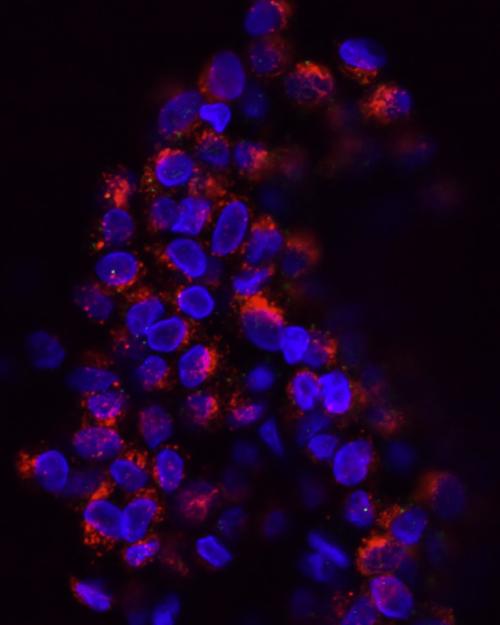A team of researchers has discovered a non-invasive biomarker that could aid with earlier diagnosis of breast cancer, the most common cancer among women, which will likely affect one in 13 women during their lives.
Advanced stage and metastatic breast cancer is considered incurable with current treatment options, with very poor prognosis. Early detection of breast cancer metastasis is therefore paramount in the treatment of the condition.
Published Aug. 15 in the Journal of Extracellular Vesicles, the study finds that particles which are secreted by tumor cells – called extracellular vesicles – displayed a high level of certain proteins (integrins αv and β1) in patients with locally advanced and metastatic breast cancer.
“The study has led to fundamental insights in the underlying mechanisms of breast cancer metastasis” said co-author Andrew Grimson, associate professor of molecular biology and genetics in the College of Arts and Sciences.
The researchers used an ultra-sensitive protein identification tool to obtain a set of protein expression profiles from the extracellular vesicles of different metastatic breast cancer cell lines. They found a high level of integrin αv in samples from patients with stage III or IV breast cancer.
The proteins offer a “promising prognostic and therapeutic target for patients with metastatic breast cancer,” said co-author Minh Le, National University of Singapore’s Yong Loo Lin School of Medicine. “Our research has opened several doors, and we hope that future work will help develop new ways to assess, monitor and suppress this hallmark of cancer."
In addition to their study’s clinical relevance, Grimson said, the research contributes to recent advances in the extracellular vesicle field. “There are functionally distinct subsets of EVs, which can now be more readily identified and studied to understand their functions and potential as therapeutic targets in the tumor environment,” he said.
In addition to Grimson and Le, co-authors include Victor Lee and Daniel Xin Zhang at the National University of Singapore.




